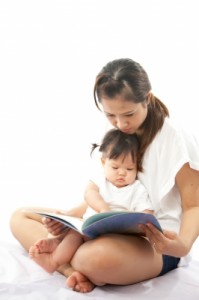Reading is an excellent way to start your child on a path to good verbal skills. Not only can reading target their comprehension and expression, it can also target their attention and memory. There are so many benefits of reading with your child, and starting early is an easy way to influence them in positive ways both emotionally and academically. Here are some of the best benefits of reading:
- Reading helps you build a relationship with your child. Pick a specific time during your hectic day to slow things down for a special moment with just the two of you. A good start could be around nap or bedtime. You will make memories with your child, get in a snuggle session, and target their communication skills.
- Reading can improve your child’s academic growth. Studies have found that if you begin reading to your children when they are toddlers and preschoolers, they have a higher success rate in formal education.
- Reading can improve language and speech skills as it aids in understanding our language better. As your child gets closer to school age, they can put their increased language skills to work. It can also help kids learn and improve developing speech sounds. Enunciate words and talk about how words “work.” You can even use picture books and make up a story to target figurative language.
- Reading can help introduce new ideas. Pick a book that is new and interesting to you and your child and make it a great learning experience.
- Reading can improve understanding of emotions. Use vocal expressions. If your child struggles to understand emotions, reading is an excellent time to practice. Focus on a few emotions at first, and then broaden your scope as your child begins to understand.
Remember reading should be interactive! Have fun with it! Here are some ideas of how to get your child involved:
Ask questions!
Ask questions during the story to make sure they are understanding and help build vocabulary. This activity also works to improve their attention:
- Where is the _______? (Have them point to items, colors, shapes, etc.)
- What do they think the characters are feeling or thinking?
- Why did _________ happen?
- What will happen next?
Ask more questions after the story:
- What was the story about?
- What is real or was it make-believe?
- Who were the characters? Did you have a favorite?
- What was the problem in the story?
- Did the problem ever get solved?
- What happened after the book ended?
There is no one right question to ask, just start talking about the books you read together. Above all, have FUN! Reading is such a wonderful way to bond with your child, and learn a little at the same time. So head to your nearest library now and start picking out your next reading adventure.

